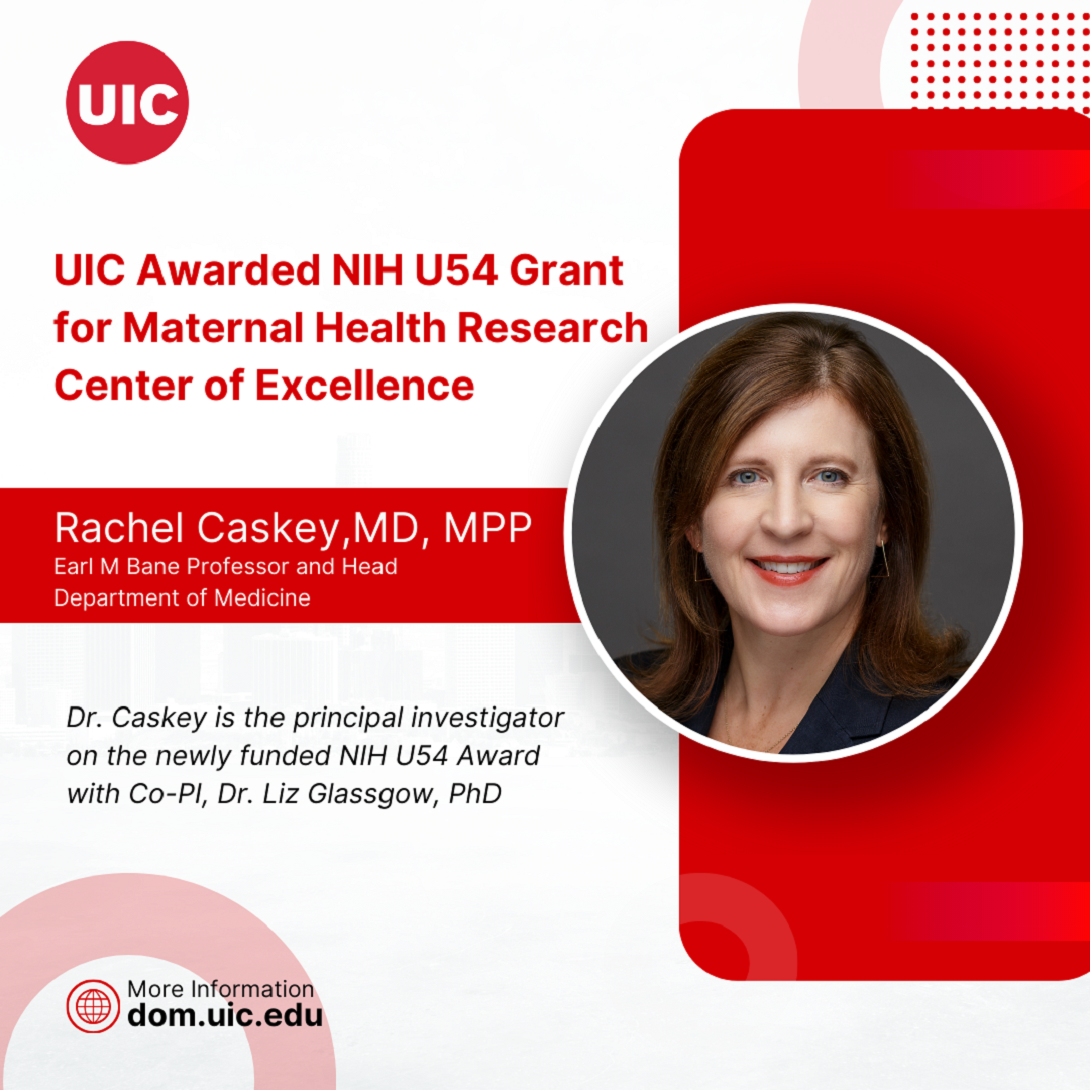Center of Excellence
The National Institutes of Health awarded the University of Illinois Chicago a six-year U54 grant to expand its Maternal Health Research Centers of Excellence
Center of Excellence Heading link

The National Institutes of Health has awarded the University of Illinois Chicago a U54 grant to expand its Maternal Health Research Centers of Excellence. Launched last year as part of NIH’s Implementing a Maternal health and PRegnancy Outcomes Vision for Everyone (IMPROVE) initiative, the Centers of Excellence develop and evaluate innovative approaches to reduce pregnancy-related complications and deaths and promote maternal health equity.
UIC was awarded approximately $3.9 million in first-year funding. The grant is expected to last six years. The UIC Maternal Health Research Center of Excellence will be led by principal investigator Rachel Caskey, MD, MPP, Earl M. Bane professor and head, along with co-principal investigator Liz Glassgow, PhD, assistant professor of medicine, UIC Department of Medicine.
The University of Illinois Chicago (UIC) Maternal Health Research Center of Excellence will effectively contribute to eliminating maternal morbidity and mortality by taking a system-level approach to addressing maternal health inequity. The overall goal of the UIC Maternal Health Research Center of Excellence is to advance maternal health research by examining the mechanisms by which structural racism contributes to maternal health disparities and develop innovative clinical practices to prevent maternal mortality (MM), reduce severe maternal morbidity (SMM), and promote maternal health equity in partnership with communities. The thematic focus is Synergize Multilevel Systems of Change for Maternal Health Equity. “Our Center of Excellence will build on existing maternal health systems in new ways and train future generations of researchers focused on maternal health” said Rachel Caskey, MD, MPP.
With these additions, the Maternal Health Research Centers of Excellence include 12 research centers, a data innovation and coordinating hub, and an implementation science hub. These institutions work together and with community partners to design and implement research projects addressing the biological, behavioral, environmental, sociocultural, and structural factors that affect pregnancy-related complications and deaths. Their work focuses on populations that experience health disparities, including racial and ethnic minorities, socioeconomically disadvantaged populations, those living in underserved rural areas, and people with disabilities.